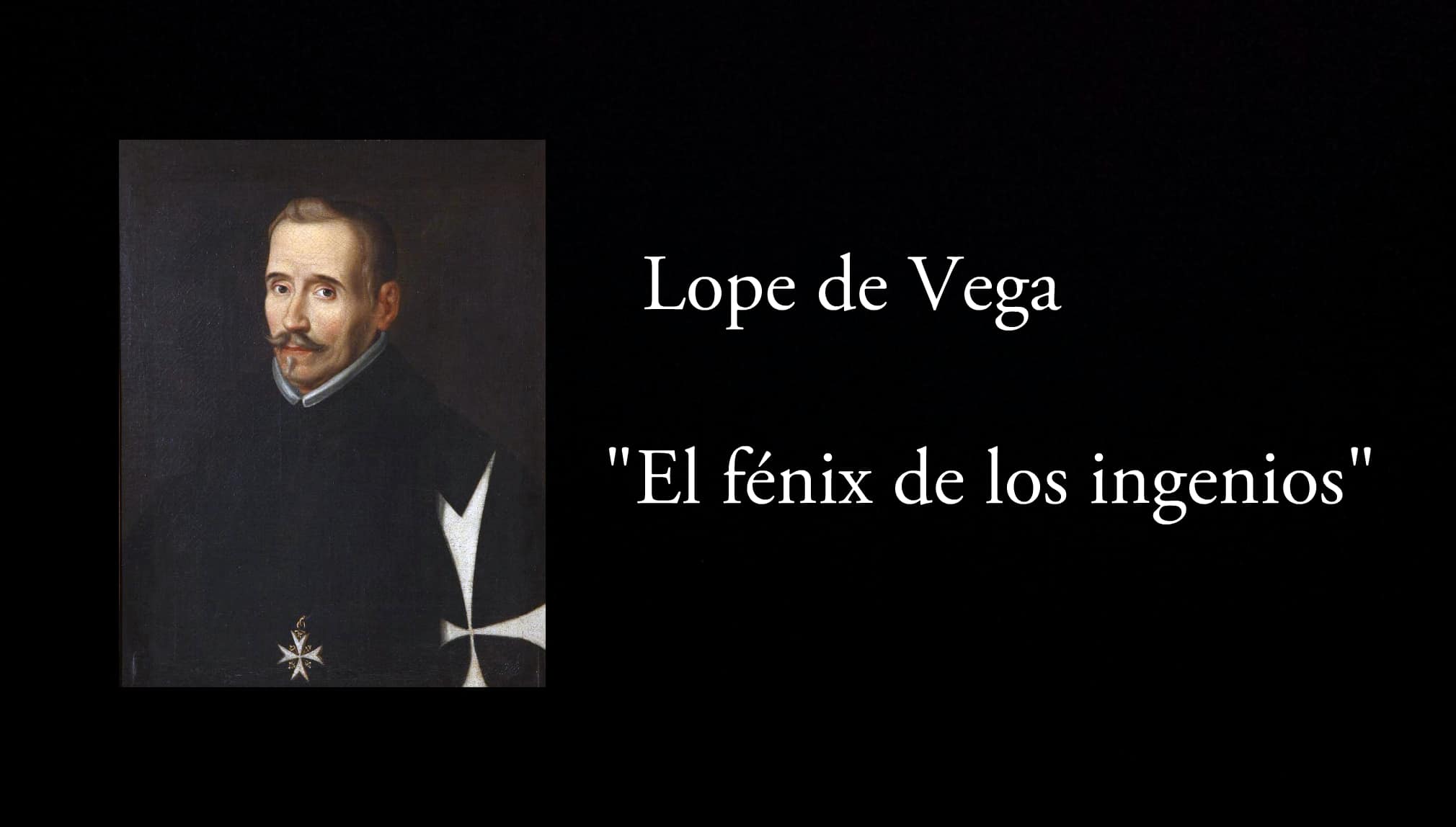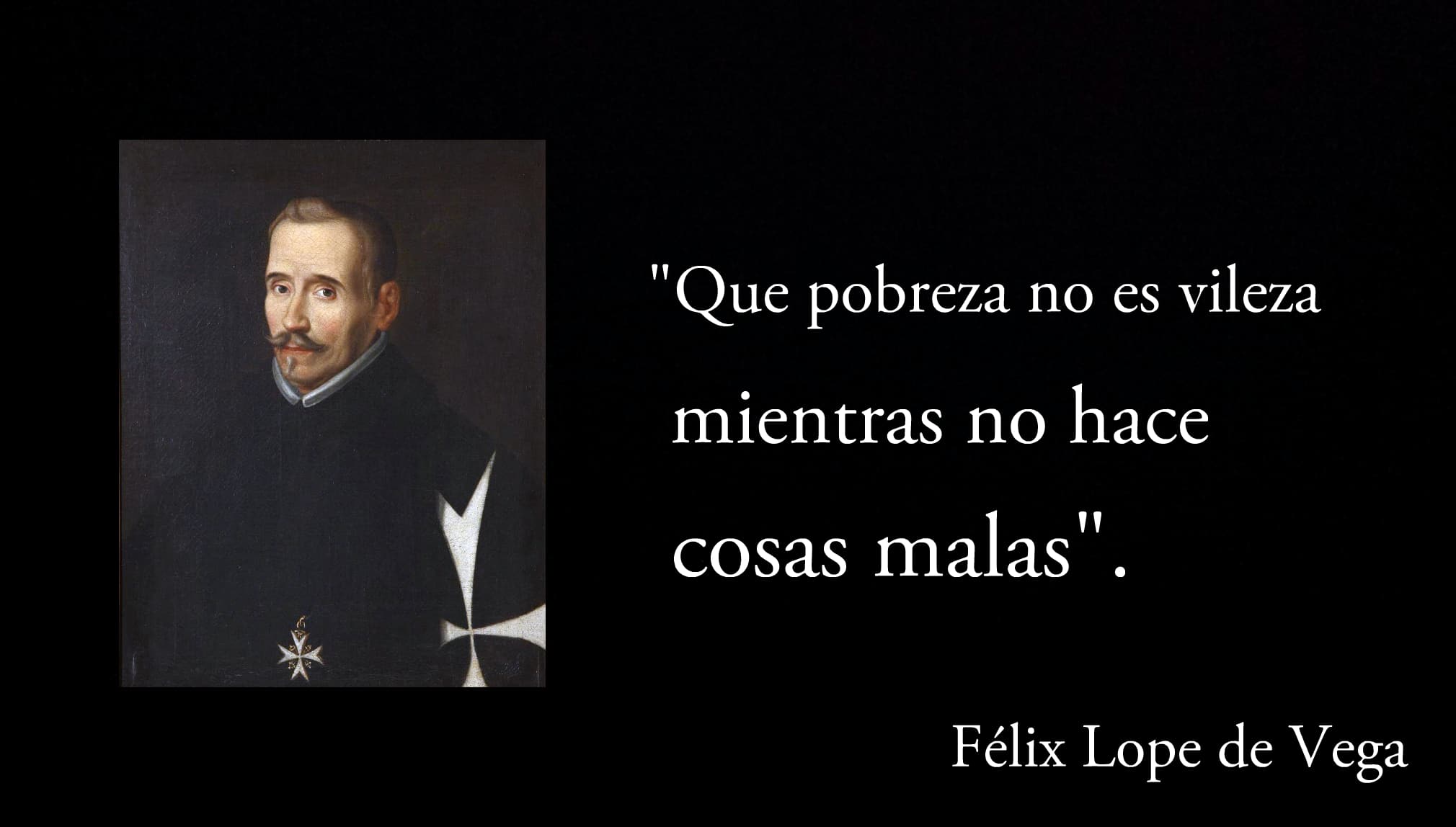
Lope de Vega, «The phoenix of the mills».
Hearing from the mouths of the great writers of yesteryear that Felix Lope de Vega was "the phoenix of ingenuity" leaves more than one thoughtful. This Madrid born in 1562 earned that nickname for his literary production capacity. He had not finished doing a work, when he already had the theme of five others in mind, just as virtuous, just as profound, just as witty.
Lope de Vega knew how to rub shoulders with the best writers of the time, being one of the most important luminaries of the Spanish Golden Age. His literary art walked through dramaturgy with the same fluidity as through poetry, to tell the truth, there was no literary genre that was difficult for him to assume; the writer knew well what he was doing and how he was doing it. Not in vain did he eat of his trade, his sonnets are acclaimed and hundreds today speak of his grace.
And clearly, who owes the nickname "The phoenix of the mills"?
Human history is often full of enormous causalities. One of these was to make two of the most important writers of the Spanish language coincide in life in the same space and time. It turns out that Miguel de Cervantes y Saavedra not only lived in the same country as Lope de Vega, but they were also residents of the same neighborhood, and both, at first, had a wide admiration for their work.
It was Cervantes, very astonished by Lope's literary and inventive capacity, who called him "monster of nature" and "phoenix of ingenuity." The years passed and so was the acclaimed Lope de Vega, the playwright, the man of comedy, the assiduous follower and admirer of the work of Vicente Espinel, a mortal immortalized by his brilliant pen.
From love to hatred between Lope de Vega and Cervantes
Life tends to take many turns, whoever praises you today, tomorrow, perhaps, seeks to destroy you, is no different among the greats. The truth is that after living together in all the social gatherings and praising each other for their works, Lope de Vega and Cervantes were confronted. If we talk about culprits at the beginning of the confrontation, history presents many theories.

Phrase by Félix Lope de Vega.
To Caesar what is Caesar's, let's be clear. During the Golden Age all the glory, for his comedies and good use of language (close, vivid, real and not far-fetched), went to Lope de Vega. Meanwhile, Cervantes was not fully understood. And it is not that El maco de Lepanto (as they said to the creator of The Quijote) it had no merit, as it does, and a lot, but it was not his time to shine. That, according to many scholars on the subject, hit Cervantes's ego. Then the one-armed Lepanto went all out against the Phoenix, and the Phoenix, in turn, responded.
The slanders from side to side were immediate, and the rest is past history. However, today his lyrics convict such attitudes, leaving the work, its phrases and teachings for the enjoyment and growth of humanity.